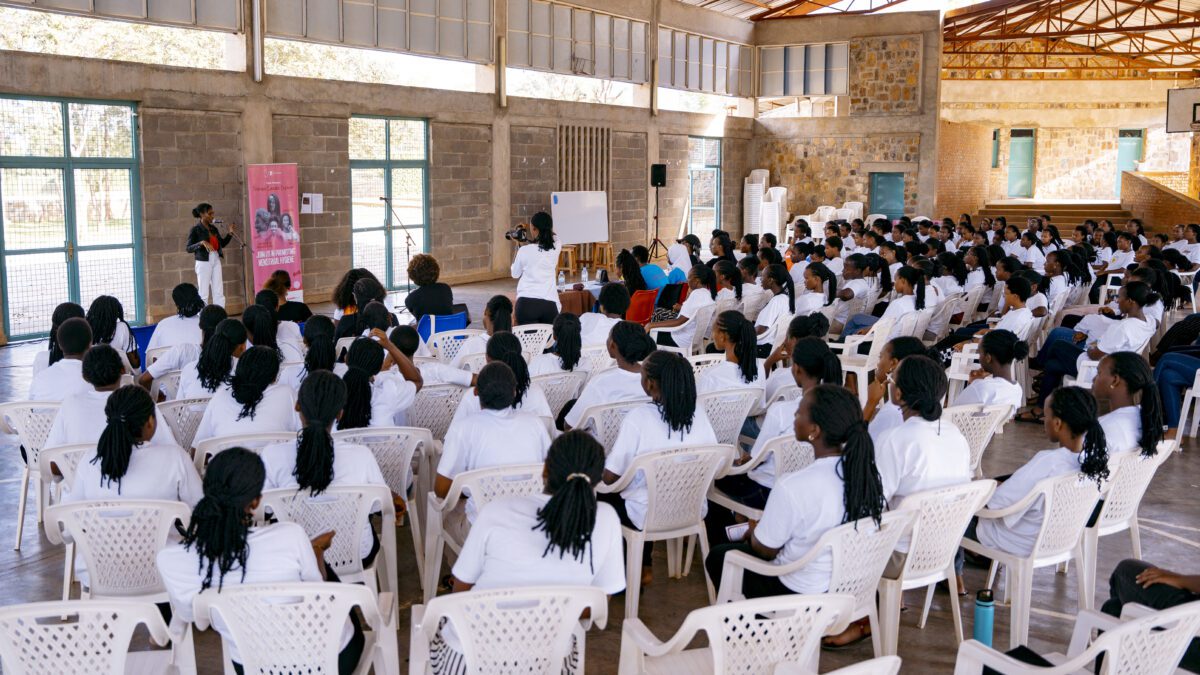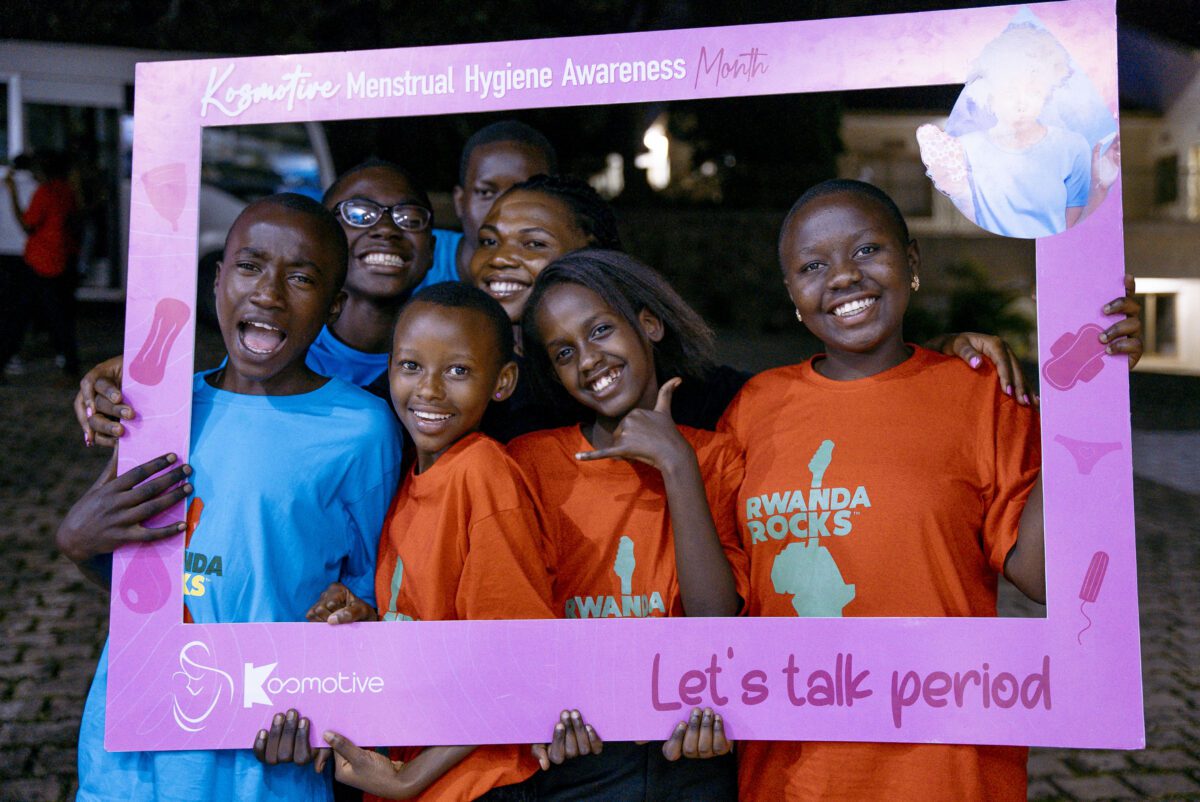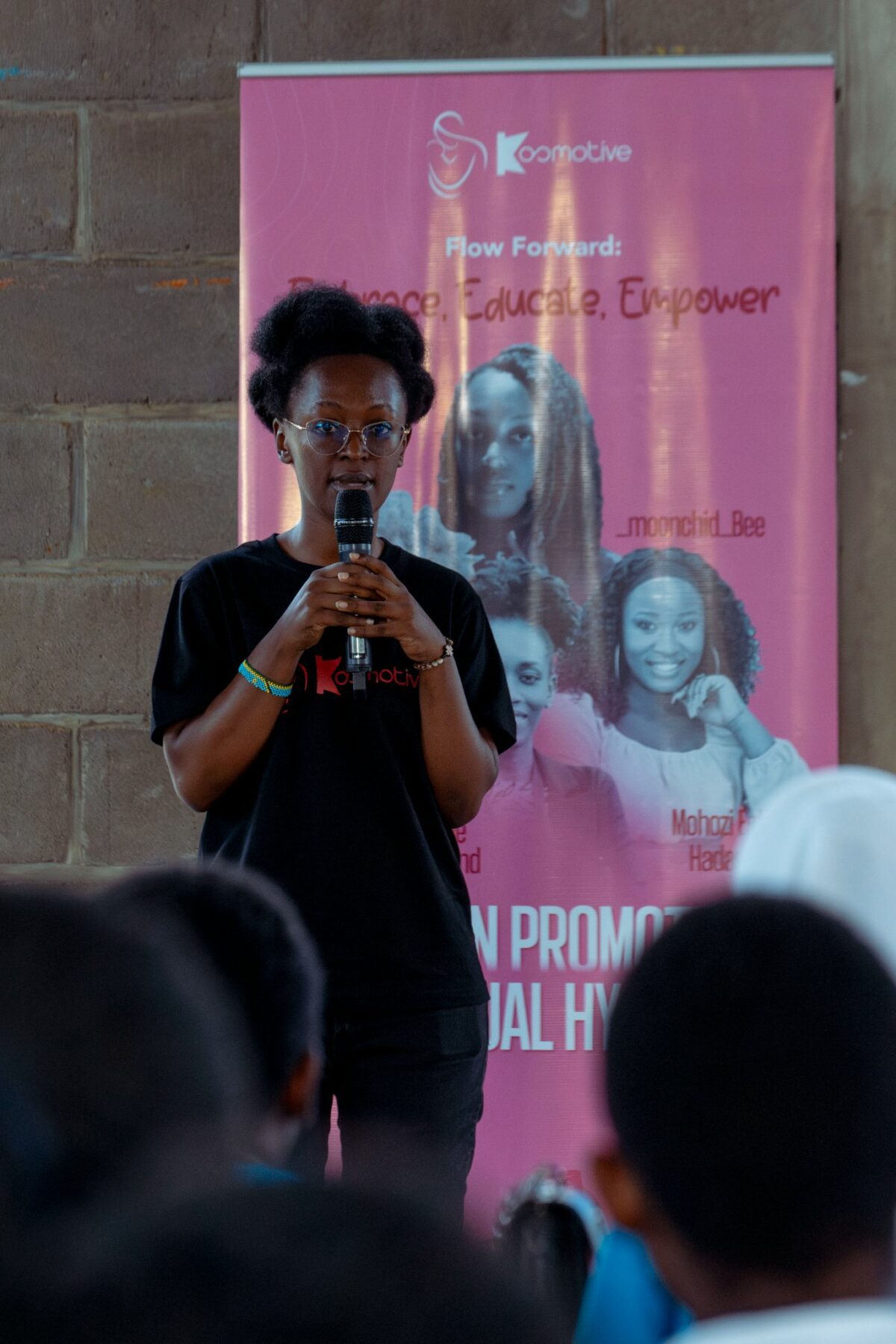
Roughly two billion people around the world menstruate every month. While this natural process affects a large portion of the global community, roughly 500 million people who menstruate worldwide do not have access to resources to manage their periods safely, hygienically and without shame. According to Wash United, the combination of lack of access to period products, education about menstruation, inadequate water and sanitation infrastructure, and persisting taboos and stigma around menstruation prevent people around the world from addressing this issue.
May 28th, World Menstrual Hygiene Day, serves as a reminder of the importance of discussing this subject to combat harmful stigmas affecting people who menstruate globally. For HJN member Blandine Umuziranenge, Founder & CEO of Kosmotive, this day is one of many in her ongoing mission to support people in accessing the care that they need.
Back in 2021, HJN published an article about the launch of Kosmotive, the social enterprise that seeks to improve maternal and child health in Rwanda and throughout Africa. Kosmotive has spearheaded a variety of resources to support these efforts, such as reusable pads and a health app and helpline to share resources for pregnant women and individuals seeking urgent healthcare services. While Kosmotive’s work continues to provide low-cost menstrual hygiene products and educational resources, the organization also plays an important role in combatting the stigma associated with periods across the country.

This stigma often affects young people first experiencing menstruation, leading them to develop a sense of shame and fear around their monthly cycle. A 2021 World Bank study found that 18% of women and girls across Rwanda are forced to miss school or work because they could not afford menstrual pads. The threat of bullying and social ostracization by male peers can also deter them from attending school or even going outside during their periods. They often develop anxiety around their periods, especially if they are uneducated on their cycle and how to manage it. “…Sometimes they have the fear before their periods because they don’t even know when it’s coming, then during and after,” Blandine explains. “They are unsure which days they are safe to go to school, or which days they are okay to go without staining their clothes.”
To address this, Kosmotive facilitates community events to educate people on menstrual hygiene and distribute KosmoPads across Rwanda. These sessions are also open to men and boys to not only introduce them to the concept of menstruation, but also show appropriate behaviors towards people who are menstruating to prevent bullying. The organization also uses traditional and social media channels to engage more people in that conversation, in hopes of normalizing menstruation and opening opportunities for women and girls to feel safe in communicating their needs.

Blandine has found that storytelling in various formats has also been an effective tool to address stigma related to menstruation. Mothers are often featured in national dialogues or publications to share their experiences managing their menstrual cycles, which often helps validate feelings of other people who menstruate to know that they are not going through this experience alone. This month, Kosmotive hosted multiple in person poetry sessions in schools in Kigali for people to share their own experiences. “What I’ve learned from this is that people connect a lot with art, more than when we just talk or write.” These sessions have been a successful tool to empower people to act out how they feel while experiencing their periods; and the poems include topics such as combatting bullying and harassment, which equips attendees with tools to feel more confident to respond in those situations. Partner organizations attending these events also are motivated to continue engaging with the mission to make menstrual products available and help broaden the conversation or develop materials for supporting menstrual hygiene management. “We want to keep doing [these activities] to try and have our content and message in a way that is connecting more with people’s feelings so that they can join our mission.”
Media is a powerful thing when it highlights something. When the conversation [around menstrual hygiene] becomes something normal on media, it becomes something normal in people’s lives.
Blandine Umuziranenge – Founder & CEO, Kosmotive
How can journalists report on menstrual health effectively?
Kosmotive has been supported by the media over the years, allowing them to share their activities with more than 10 million people across multiple mediums, showing just how vital the role of journalism is in educating communities on menstrual hygiene. Blandine highlights a few ways that journalists can effectively report on menstrual health in their communities:
- Show how big the issue of menstrual hygiene is globally. As millions of people who menstruate lack access to education and menstrual products, journalists can play a key role in connecting their audiences to vital information. Organizations such as Wash United have developed useful guides in multiple languages sharing the basics on menstrual health and resources for media outlets to incorporate in their reporting.
- Share personal stories that audiences can connect to. While sharing key data points can help emphasize the scale of the issue in your community, personal stories often leave a lasting impact on readers. Oftentimes stories of people going through their daily life managing their menstrual cycles or combatting stigma from their peers allows the reader to not feel isolated in their own experiences. Blandine goes on to emphasize that it is important to show the issue at large, but it’s also good to include stories about real life people and how they overcome those obstacles so that other people learn from them. These stories can also reach perpetrators of stigma in communities so that they can learn lessons about how their actions can hurt and oppress people in one way or another.
- Seek out and report on community events and dialogues around menstrual health. As conversations around menstrual health occur across the global communities, journalists have and will continue to play a key role in amplifying them. Seeking out webinars, trainings, workshops or local events can be a great starting point to learn more about the subject and amplify important resources organizations are developing in your region.
Outside of these global days of recognition, journalists should continue to report on this subject to educate and address stigma within communities, like reporting on any other health issue in their communities. Blandine leaves journalists with an important reminder that “media is a powerful thing when it highlights something. When the conversation becomes something normal on media, it becomes something normal in people’s lives.”
To learn more about Blandine’s story and Kosmotive, contact [email protected].
The Health Journalism Network is thrilled to bring together a diverse group of health journalists and share expertise among our members. We hope to continue highlighting our member accolades and initiatives throughout the year. If you have any stories you would like to share with HJN, please contact us at [email protected].